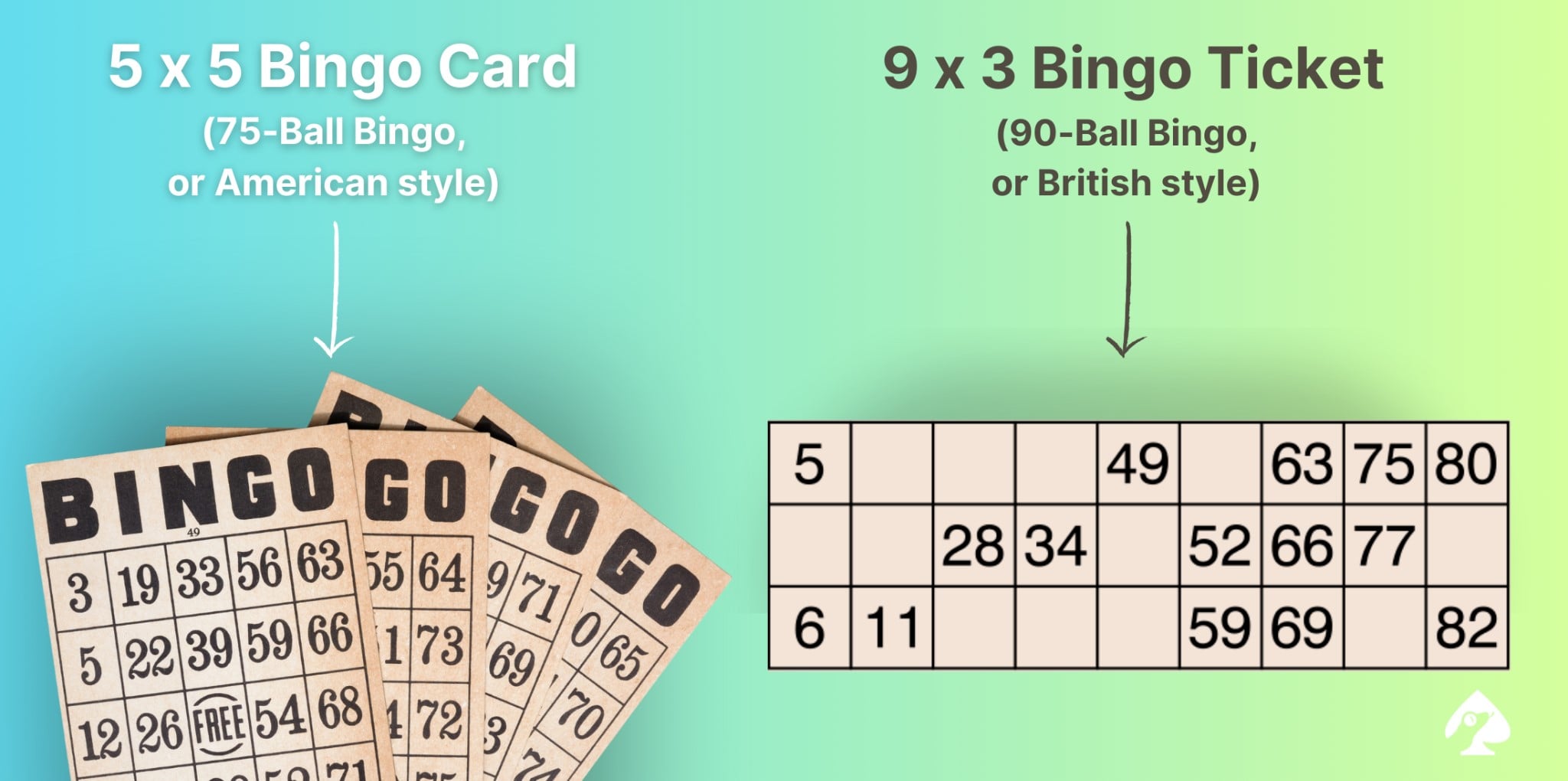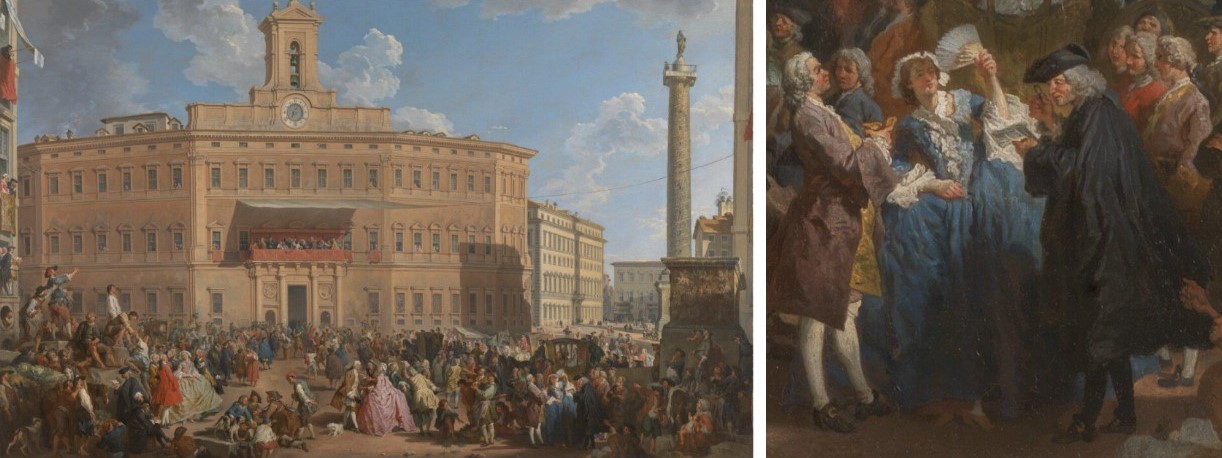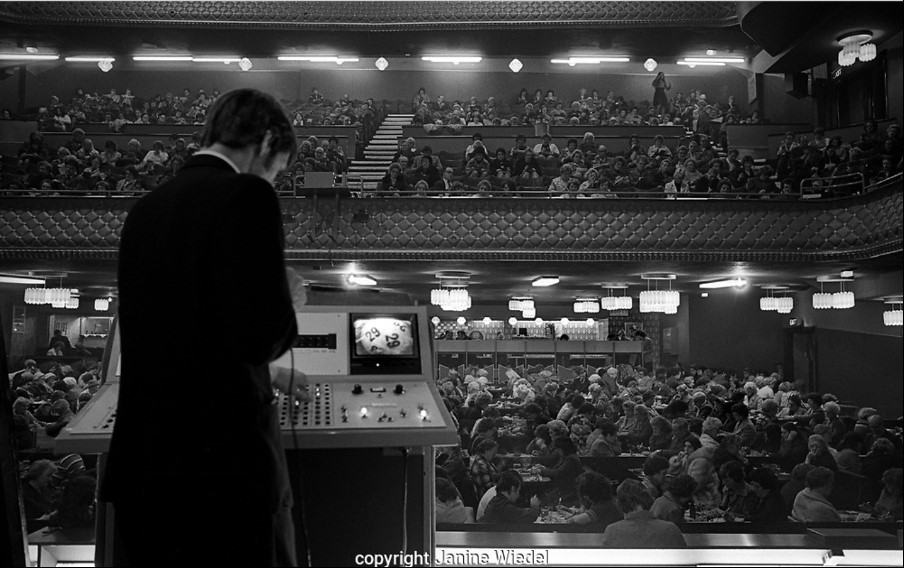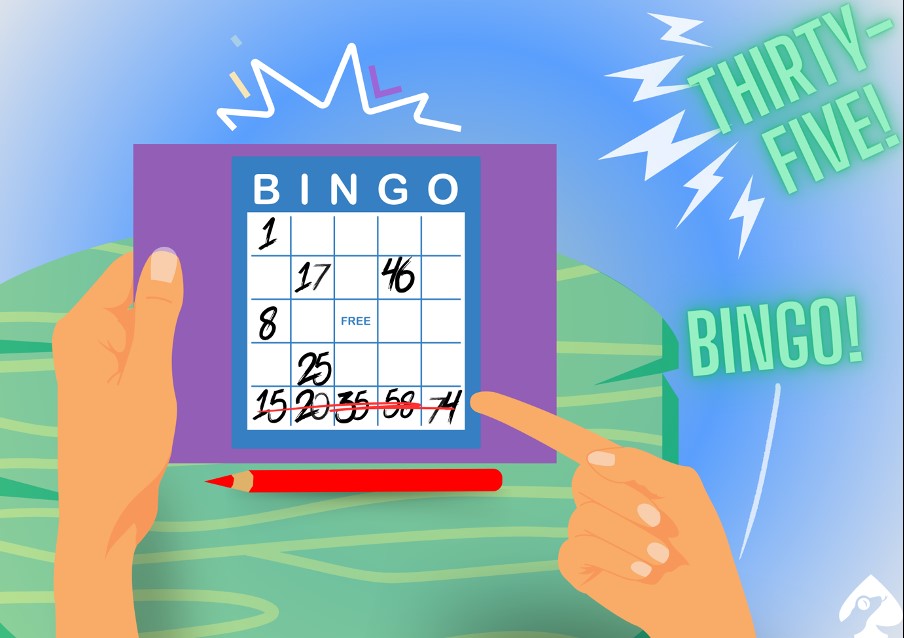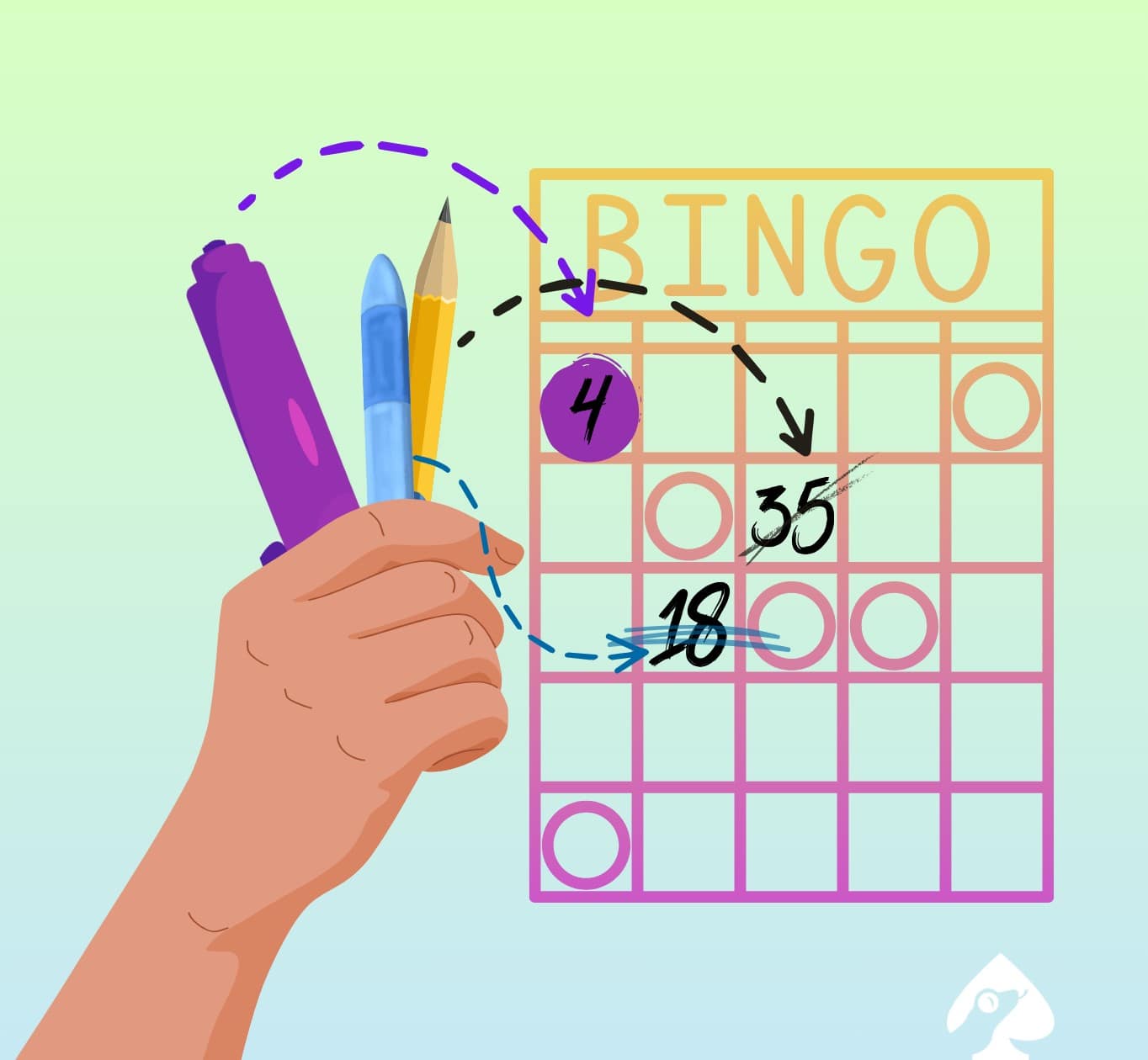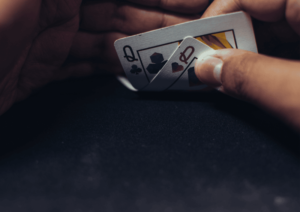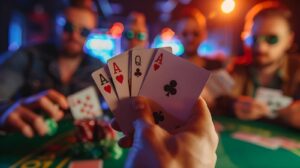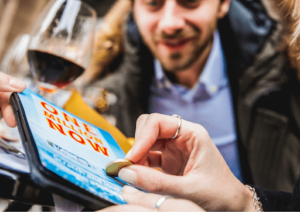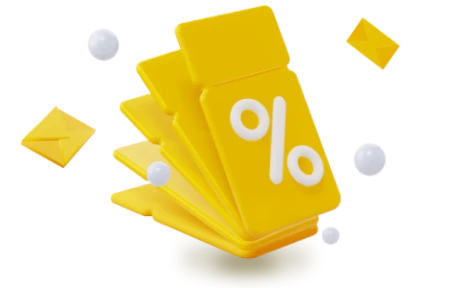How to Play Bingo in the UK
I believe in games as cementers of family and neighborly ties
— Edwin S. Lowe, the promoter of bingo
It’s fun, it’s simple, it’s legendary. Bingo is a game of chance played with randomly drawn numbers which players match against pre-printed numbers. Its resonance within UK culture is not merely a tale of numbers and luck but of a component that played to the tune of post-war society’s heartbeat. An element of the backdrop to a nation in transformation, a collective pastime that binds communities together.
Although you don’t need to develop a complex strategy to beat other players, it never gets old. This article covers bingo’s evolution from an Italian lottery to a cornerstone of British and global leisure culture, the game’s mechanics, or how to play bingo, its profound societal impact, the nuances of calculating the winning bingo odds, and gives you hints to the reviews of the best 2025 offline bingo halls and top online bingo sites in Great Britain.
The Game Mechanics of Bingo
Bingo is intricately interwoven with the mechanics of chance. Each bingo card is a unique 5×5 (American style) or 9×3 (UK style) matrix, typically called 75-ball bingo and 90-ball bingo.
The central 75-ball bingo square is typically ‘free’ and the remaining are filled with numbers ranging from 1 to 75, distributed in a specific arithmetic pattern across the columns. This pattern can be a line — horizontal, vertical, or diagonal — or a specific shape as defined by the game’s rules.
The British version of it, the Housie, played also in The UK National Bingo Game, has 4 ‘free’ spaces in each row, and the number of rows depends on the tickets’ layout, which can be both vertical and horizontal.
The two most common bingo card types
Both the American and British bingo varieties set the numbers in a row according to a particular number range. The following tables detail them
| Column | Number Range |
|---|---|
| B | 1–15 |
| I | 16–30 |
| N | 31–45 |
| G | 46–60 |
| O | 61–75 |
American 75-ball version
| Row | Number Range |
|---|---|
| 1st | 1-19 |
| 2nd | 10–29 |
| 3rd | 20–39 |
| 4th | 30–49 |
| 5th | 40–59 |
| 6th | 50–69 |
| 7th | 60–79 |
| 8th | 70–89 |
| 9th | 80–88 |
British 90-ball version
The game’s outcome unfolds slowly compared to other forms of gambling, creating a sustained period of anticipation and suspense. What distinguishes it from lotteries or other gambling games where results are instantaneous is bingo’s unique requirement — the player’s presence and participation during the draw.
Bingo is one of the few classic games that reached our age through centuries. Its rich history takes roots in the Italian lottery.
From Italian Lottery to All Europe’s Favourite: How Old is Bingo
The game that would become bingo originated from the 16th-century Genoese lottery Lo Giuoco del Lotto D’Italia, swiftly traversing Europe and mutating through cultures. Around 1750, it blossomed in France as a Lotto and metamorphosed into a Tombola in the very same Italy, necessitating individual cardboard layouts and a set of 90 balls.
Giovanni Paolo Panini, The Lottery in Piazza di Montecitorio, Rome
Later, the Lotto–Tombola crossed the Atlantic, and by the late 1920s, it had been reshaped into Beano in North America and then Bingo. Edwin S. Lowe’s role in this transformation is pivotal.
The toy salesman discovered the game by chance at a carnival on a stretch between Atlanta to Jacksonville. He noticed that players wouldn’t give up a seat near one of the booths with a peculiar game. Later, the pitchman would tell Lowe what he brought to his children a Lotto variant, Beano, from one of his tours to Germany and saw the potential for widespread appeal. As, in turn, did Lowe. He reproduced the game with his friends. Once, a girl, overexcited with her approaching victory, shouted out B-B-B-BINGO! instead of Beano! That is how the term is believed to have been coined.
The evolution of bingo also involved the figure of Columbia University’s mathematician Carl Leffler. He created 6,000 tickets with unique combinations and went insane afterwards. Lowe stated himself:
We were driving him, offering him as much as a hundred dollars a combination toward the last. It was a terribly tough job. I was going daffy myself, checking those cards.
(Kaye 38)
Lowe and Leffler elevated the game from a carnival attraction to a fundraising powerhouse, notably aiding churches and charitable organisations during the economic strain of the Great Depression.
Bingo, thus, is over five centuries old. But the question that remains unanswered is how the game managed to become a beloved pastime among so many Brits. We are going to address bingo’s proliferation in British community halls next.
Bingo in British Community Halls
Lowe’s discovery of the game and his subsequent popularisation turned bingo into a vernacular staple. The game followed a parallel narrative of growth and commercialisation in the UK. By the middle of the 20th century, bingo had become ingrained in community life as a result of the UK’s post-war social environment — a climate high in leisure needs. This created the conditions for a commercial boom, together with rising disposable income and new laws like the 1960 Betting and Gaming Act.
The Mecca of Bingo: Eric Morley’s Visionary Shift
Eric Morley nicknamed Mr Bingo and “a genius for publicity” by The Guardian, is largely to thank for bingo’s commercial success in the UK. When Morley first encountered the game, he served as an army entertainment officer skilled at interpreting mass preferences. As he assumed leadership of Mecca Leisure Group’s PR, he took advantage of it.
His insight into the popularity of bingo resulted in its debut at Mecca locations, where it was first included as a side event to dance. Mecca had ushered in a new era of commercial bingo by the early 1960s, providing glamour and money, inspiring dance halls to become bingo grounds, and amassing an incredible 500,000 bingo books every week. The strategy was a clear success, and the plan to “sell Mecca glamour through gambling” turned out to be a profitable one. It went beyond merely embracing bingo because of Eric Morley’s innovative energy. It became synonymous with the game’s evolution into a household name across the UK.
Janine Wiedel, Caller announcing numbers at Mecca Bingo Hall in Birmingham, the West Midlands, in the 1970s
Mecca Bingo clubs, in particular, are a direct offspring of Morley’s idea. Gamblizard’s recent 2025 detailed examinations of Mecca Bingo brick-and-mortar halls in such UK cities as London, Manchester, Glasgow, Birmingham, Cardiff, Leeds, Bristol, Newcastle, and Leicester showcase the club’s significance. Some of them offer the possibility to play bingo online as well.
Across all the exemplified halls, just as in other bingo establishments, the gameplay is as follows.
A visual representation of how to play bingo
How To Play Bingo
Whether in a local community hall or a modern online bingo setting, the fundamental steps to playing bingo remain largely the same, unfolding by this pattern:
 Purchase Your Bingo Card
Purchase Your Bingo Card Begin with a bingo card, which is normally a 5×5/9×3 ticket with random numbers for 75-ball and 90-ball games.
 Expect the Number Calls
Expect the Number Calls The game starts with a Caller (a person or a computer) drawing and calling out numbered balls at random, like in a lotto. Note that the numbers are called once only.
 Mark Your Matches
Mark Your Matches Find and sign your ticket with matching numerals as soon as you identify them. Most often, you will be offered to use a special transparent marker called a dabber (or a dauber, or a dobber). It comes in different colours and may be bought directly at a bingo hall with a ticket. That doesn’t mean you may not use a pen or a pencil. Simply make sure that the numbers crossed out remain easily distinguishable at the moment of validating your wins.
 Identify Winning Patterns
Identify Winning Patterns Be conscious of your bingo game’s winning patterns, which may include a whole line horizontally, vertically, diagonally, or even a full house, depending on the type being played.
 Achieve Bingo
Achieve Bingo Continue to check off numbers until you’ve completed the game pattern.
 Call Out Your Victory
Call Out Your Victory When you complete the pattern, shout Bingo! to notify the caller and other participants of your victory.
 Validate Your Win
Validate Your Win Show your card to the game official for proof that all indicated numbers were accurately called.
 Receive Your Reward
Receive Your Reward If your card is verified as a winner, receive any awards or associated winnings.
Ways to mark your matches: a dabber, a pen, a pencil
Next, we transition to understanding how to calculate your odds of winning.
Calculating Your Winning Bingo Odds
In this game, the probability of victory is influenced by two primary factors:
- the number of cards you are playing
- and the total number of tickets in play.
For example, if 100 tickets are in play, and you possess one, your chances are 1 in 100. This probability increases proportionally with the number of tickets you hold.
So, if you hold ten tickets and there are 100 in play:
In 90-ball bingo, the game progresses through phases: one line, two lines, and finally, a full house. The odds of completing each pattern vary:
- Single Line: Achievable sooner due to the requirement of marking a single horizontal line.
- Double Line: Less probable than a single line, requiring two horizontal lines.
- Full House: The most challenging, requiring all numbers on the ticket to be marked.
The tickets are sold in strips of six, covering all 90 numbers, ensuring every draw marks one number on the strip.
| Game Phase | Average Calls Needed | Probability |
|---|---|---|
| Single Line | 41.37 | Early Win |
| Double Line | 50 | Medium |
| Full House | >60 | Low |
Odds of winning based on the game phase
| Number of Tickets | Impact on Odds |
|---|---|
| Fewer Tickets | Higher Odds, Lower Jackpot |
| More Tickets | Lower Odds, Higher Potential Jackpot |
Adjust your strategy
The goal is to find a balance between the number of tickets you can afford and the optimal time to play, maximising your chances of winning while enjoying the game responsibly.
References
- Barker, Dennis. “Eric Morley.” The Guardian, www.theguardian.com/news/2000/nov/10/guardianobituaries2, November 10, 2000. Accessed March 11, 2024.
- Beineke, J., Rosenhouse., J. The Mathematics of Various Entertaining Subjects. Princeton University Press, 2019.
- Benson, Harry. Bingo players queuing for their tickets at a bingo hall in 1962. 1961. Getty Images, www.gettyimages.co.uk/detail/news-photo/bingo-players-queuing-for-their-tickets-at-a-bingo-hall-in-news-photo/3420460?adppopup=true. Accessed March 11, 2024.
- Downs, Carolyn. “Mecca and the Birth of Commercial Bingo 1958–70: A Case Study.” Business History, vol. 52, no. 7, 2010, pp. 1086-1106.
- Ethier, Stewart N. The Doctrine of Chances: Probabilistic Aspects of Gambling. Springer, 2010.
- Kaye, Marvin. The Story of Monopoly, Silly Putty, Bingo, Twister, Frisbee, Scrabble, Etcetera. Stein & Day, 1992.
- Moubarac, Jean-Claude, Shead, N. Will & Derevensky, Jeffrey L. “Bingo Playing and Problem Gambling: A Review of Our Current Knowledge.” Journal of Gambling Issues, Issue 24, July 2010.
- Panini, Giovanni Paolo. The Lottery in Piazza di Montecitorio. 1743-4, National Gallery, www.nationalgallery.org.uk/paintings/giovanni-paolo-panini-the-lottery-in-piazza-di-montecitorio. Accessed March 11, 2024.
- Wiedel, Janine. Caller announcing numbers at Mecca Bingo Hall in Birmingham, the West Midlands in the 1970s. Wiedel Photo Library, archive.wiedel-photo-library.com/gallery-image/BINGO/G0000kPsNzFJibqw/I0000IkCi7hMxg9Y/C0000Cpk7Vc1U9W8/. Accessed March 11, 2024.
- Zollinger, M. Random Riches. 1st ed. Taylor and Francis, 2016.
